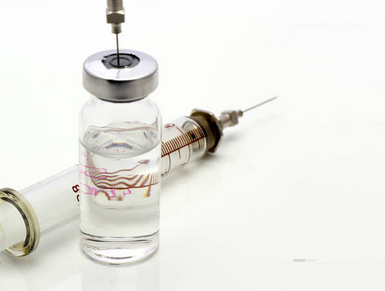DOI: 10.13140/RG.2.1.2717.4484
ABSTRACT
Strength of Recommendations: Weak in favor of the use of oral baclofen and weak in favor of the use of intrathecal baclofen
Technology: Oral baclofen, intrathecal baclofen
Indication: Treatment of spasms in multiple sclerosis
Characterization of the technology: The Baclofen is a derivative of gamma-aminobutyric acid (GABA) and reduce muscle spasms by inhibition of nervous stimuli in the spinal cord. Oral presentations in 10 mg tablets and surgical implant system of continuous intrathecal infusion pump are available.
Question: Baclofen is the most effective, safety and cost-effective alternative to be adopted in the Brazilian Health System (SUS) for the treatment of spasms in multiple sclerosis?
Search and analysis of scientific evidence: We searched for systematic reviews (SR) of clinical trials related to multiple sclerosis and baclofen in Medline (via Pubmed), Centre for Reviews and Dissemination, The Cochrane Library, EMBASE and LILACS. We searched for Health Technology Assessments (HTA) in Brazilian Network for Technology Assessment (REBRATS) and the international agencies National Institute for Clinical Excellence and Health (NICE / UK), Health Technology Assessment Programme (NIHR / UK), Canadian Agency for Drugs and Technologies in Health (CADTH / Canada) Agencies y Evaluación Units Sanitary Technologies (AUnETS / Spain) and Pharmaceutical Benefits Advisory Committee (PBAC / Australia). The quality of evidence and strength of recommendation were evaluated by the GRADE system.
Summary of results of selected studies: We included eight studies: six SR and two HTA. The SR demonstrated no statistically significant differences between baclofen and diazepam or tiazidine. However, some studies have reported significant difference between baclofen compared to placebo. The SR included low or intermediate quality evidence with weak recommendation in favor of baclofen. One HTA recommend intrathecal infusion of baclofen for patients with severe spasticity and not responsive or tolerant to oral baclofen therapy, considered as cost-effective. Other HTA recommend oral baclofen as first-line therapy for spasticity in multiple sclerosis.
Recommendations: We weakly recommended the use of oral baclofen for the treatment of spasticity in patients with multiple sclerosis. Similarly, we weakly recommended the use of intrathecal baclofen for patients with severe spasticity and refractory or intolerant to oral baclofen. According to the studies found there was no evidence that compromise the security or discredit the use of oral baclofen. The complexity of managing the disease and the low cost of this pharmaceutical form also support the recommendation to use this alternative. We included only one systematic review of low quality, which suggested benefit of using intrathecal baclofen. Intrathecal administration of the medicine may assist in management of painful spasticity for patients who can not walk, or who lost their bowel and bladder functions. There is no injectable bacofen licensed in Brazil. We did not find the cost of intrathecal infusion pump implantation specifically for the treatment of spasticity in SUS. However, there is hospital procedure in National List of Actions and Health Services (RENASES) for intrathecal implantation of drug infusion pump for the treatment of chronic pain.
Full content in Portuguese































Adicionar Comentário